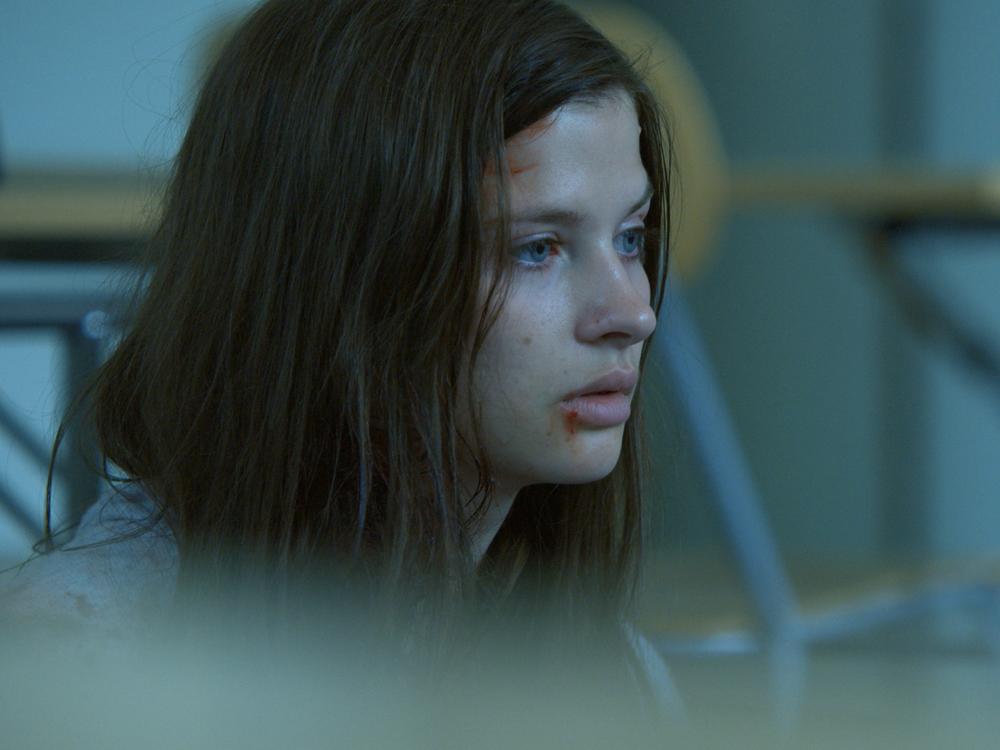Section Branding
Header Content
Tragedy feels all too familiar in these two international dramas
Primary Content
When a show is called The Accident, you know something very bad is going to happen, and when it opens with a kids' birthday party, you know it's probably going to be extra bad.
While on vacation, I came across the 10-episode Spanish-language Netflix series The Accident, which is currently in the Netflix Top 10. I decided to give it a whirl, as much as anything because I wanted to know what the accident was. I had not watched the trailer, which gives it away, but because it does (and it's revealed in the opening episode), I will tell you what the accident is: At the party, the bounce house where the kids are playing is picked up by a gust of wind, and tragedy ensues.
Unfortunately, this can happen (there was a similar tragedy in Maryland not long ago), but this is only the inciting incident. As we follow the affected families, there is intrigue over a business deal, there is an affair, there is a very scary man, there is a teenage romance, and there is a tangled tale of who is responsible for this accident. The series is about the ways these people are changed by one day in their lives, but it also has a strong undercurrent of soapy drama.
I'm not sure the show is terrific, but it's very watchable, in that I watched all 10 episodes in a single day. (Vacation!) This is a Mexican drama, and it made me think about how, wherever a story comes from, the deepest anxieties often echo pretty effectively. A nightmare that involves kids, families that start placing blame, parents who are trying to balance career and family responsibilities with devastating costs for failure – it's all pretty horrifying.
It's hard to transition with the words "speaking of horrifying," but I also watched the 2019 Swedish drama series Quicksand, adapted from the book of the same name, which begins with a school shooting. A young woman named Maja (Hanna Ardéhn) is discovered covered in blood after a shooting that kills several people (including her boyfriend), and over six episodes, the series explores what her role was and what culpability she has. While some of it is about what could possibly drive anyone to commit an act like this, a lot of it is also about the toxicity that can develop in relationships between teenagers, particularly ones who feel alienated from friends or family. Ardéhn is excellent, as is the rest of the cast, and the story walks a fine line between sensitivity and mystery as it provides more and more information about the events on the day.
While both of these series are what you might call a "tough sit" because of the subject matter, it's always interesting to look through a different lens at storytelling that touches on familiar things. For an American viewer like me, both series drive home the point that the justice system works differently in different places – and that criminal offenses can have wildly different penalties in other countries.
And as always, I do recommend watching these shows with subtitles, for the simple reason that you have to give them your attention. You can't second-screen if you need to read along, and there's much to be said for training yourself to let something hold your focus for, say, eight hours or so.
Netflix is now serving me recommendations for many, many, many dramas that were produced internationally. I'll see you in a few years, when I've made a dent.
This piece also appeared in NPR's Pop Culture Happy Hour newsletter. Sign up for the newsletter so you don't miss the next one, plus get weekly recommendations about what's making us happy.
Listen to Pop Culture Happy Hour on Apple Podcasts and Spotify.

